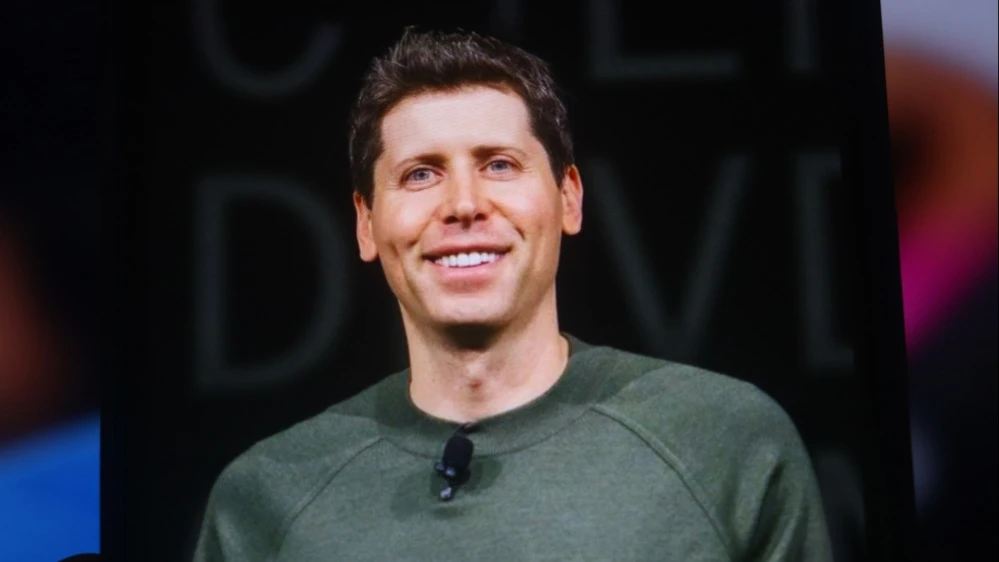The head of OpenAI warned of an AI bubble. Does Wall Street agree with him?
Speculative capital is channeled into companies with only perceived potential, which can lead to the formation of localized overheating in the market, analysts said

OpenAI CEO Sam Altman believes that a bubble is inflating around the market formed by artificial intelligence, The Verge reported. Altman compared this situation to the dot-com bubble - the collapse of the stock market after the collapse of unprofitable Internet companies in the early 2000s. Analysts are divided: some support Altman, others do not consider the market overheated, although they see problems in individual companies, on which investors put too much hope.
Details
The AI market has inflated a bubble like the dot-com crisis, Sam Altman, CEO of OpenAI - the developer of ChatGPT - said during an Aug. 15 dinner with reporters.
"When bubbles occur, smart people are overly encouraged by some grain of truth," The Verge quoted him as saying. - If you look at most bubbles in history, such as the tech bubble, there was always something real behind them. Technology did make a huge difference. The Internet was a really big deal. People were overly enthusiastic."
The dot-com bubble to which Altman refers collapsed between March 2000 and October 2002, during which time the Nasdaq technology index lost nearly 80 percent of its value. Investors enthusiastically poured money into Internet companies in the 1990s, but in the 2000s it turned out that many of the startups never generated revenue or profits.
"Are we now at a stage where investors are generally overly enthusiastic about AI? In my opinion, yes. Is AI the most important development in a very long time? In my opinion, also yes," the OpenAI CEO added
Does anyone else feel that way?
The comments from Altman, whose company was valued at $300 billion in April on the back of the AI boom, confirm other analysts' fears that investment in AI is growing too fast, CNBC writes. Alibaba co-founder Joe Tsai, Bridgewater Associates founder Ray Dalio and Apollo Global Management chief economist Thorsten Slock have previously issued similar warnings. For example, Slok said in July that the current AI bubble is actually bigger than the dot-com bubble, and the ten largest companies in the S&P 500 index are even more overvalued than they were in the 1990s.
What analysts fear
The market's attention is now focused on the annual symposium of the Federal Reserve System, which will be held August 21-23: there Fed Chairman Jerome Powell may give a more "hawkish" assessment of the prospects for rate cuts than investors expect, notes Barron's. This creates risks for highly valued stocks, especially in the technology sector, the publication emphasizes.
According to Barron's, since the beginning of the year, the market capitalization of the S&P 500 has increased by $4.865 trillion, and almost half of this growth was provided by the shares of technology giants from the "Magnificent Seven". Their total capitalization reached $19.68 trillion - about 36% of the total value of the index. At the same time, according to a number of ratios, the technology sector securities are valued higher than the whole index on average.
The S&P 500 index is now trading at 5.3 times its book value, BofA strategist Michael Hartnett wrote on Aug. 15. He said the S&P 500's P/B ratio (the ratio of market capitalization to asset value minus liabilities) is now higher than it was in March 2000, when the dot-com bubble peaked and began to burst, triggering the transition to a bear market. "It better be different this time," Hartnett noted.
"If most investors are already invested in a narrow range of overvalued securities, who's going to buy them if something goes wrong or sentiment changes? - Steve Sosnick, chief strategist at Interactive Brokers, said in an interview with Barron's. - It's like a crowded building: if everyone wants to get out at the same time, there will be a crush. That's the danger.
There is some truth to Altman's words, but the risks are company-specific, Ray Wang, director of semiconductor, supply chain and emerging technology research at Futurum Group, told CNBC on Monday. "If you talk about investment in AI and semiconductors in general, I don't think it's a bubble. The fundamentals across the supply chain remain strong and the long-term trend dynamics in AI justify further investment," he said.
However, Wang emphasizes that a growing amount of speculative capital is being channeled into companies with weak fundamentals and only perceived potential, which can lead to the formation of local market overheating.
Are there any optimists?
Technology giants will remain growth leaders, Treasury Partners Chief Investment Officer Richard Saperstein believes. "We expect continued earnings growth, cash flow reinvestment and expansion of their global footprint," he wrote in a note cited by Barron's. Saperstein emphasized that he believes investors should remain highly invested in U.S. stocks, especially those of the largest technology companies, as stocks will receive support from deregulation (reducing bureaucratic costs under a Trump presidency), the return of manufacturing to the U.S. and capital expenditure allowances. All this will eventually become an additional stimulus for economic growth, the analyst believes.
This article was AI-translated and verified by a human editor
